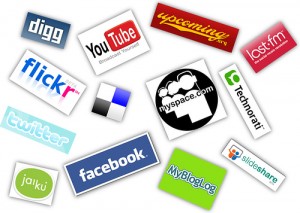I have long been spreading the word to my customers about the security problems of social networking sites like Facebook, Myspace, & Twitter. Much like email, they have become a necessity in the lives of many of us who depend on the internet to aid in running our businesses. Also like email, they are a breeding ground for everything that is malicious on the net. Luckily the same security tips apply.

Here are a few quick tips to help make sure you don’t have to give us a call to clean up the computer equivalent of H1N1 that you might catch from malicious wrongdoers.
1) Just because it’s coming from a friend does not mean it’s OK. If you get an out-of-character direct message on Facebook or Twitter from a trusted person linking to a strange website, it might mean they have been infected and are spreading the infection to you. Don’t click on the link. Instead, contact that person and ask them if they did indeed send it!
2) Don’t give out personal information to online “Applications”. You really don’t need to give your cell phone number to the Mafia Wars or Farmville people. It’s a scam. They will start billing you through your cell phone if you do for what amounts to virtual goods.
3) If your computer has a pop-up that says you’re infected and it’s not coming from your anti-virus software, then that is most likely some malicious website trying to infect you. Don’t click anything! Hit Alt-F4 to close the window or just shut down your computer immediately. If anything strange happens afterwords it may be too late, at that point give us a call.
4) Keep you computer and its security software up to date. I know the constant Microsoft updates are bothersome, but the majority of malicious software out there attacks computers that could have avoided the infection if they were properly patched. Anti-Virus software is complicated and cumbersome. Take the time to learn the basics of how to update it and run a security scan so that you are familiar with it in the case of a fraudulent security notice as stated above, and more importantly so that you are pro-actively protecting yourself!
5) If it’s too good to be true, than it is. That is not technical at all, but it rings true most of the time. Sure there are some great free things like AVG Anti-Virus and Malwarebytes Anti-Malware, but a lot of the time you will be paying a price for something that is advertised as free. Use your head, and use Google to research a freebie before committing to it. It will save you a lot of time and possibly money down the road.
